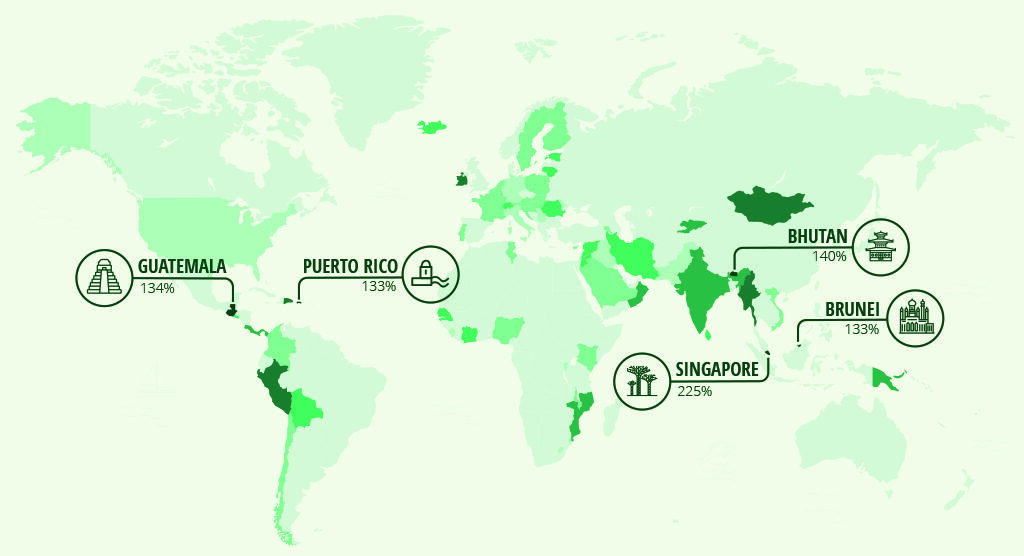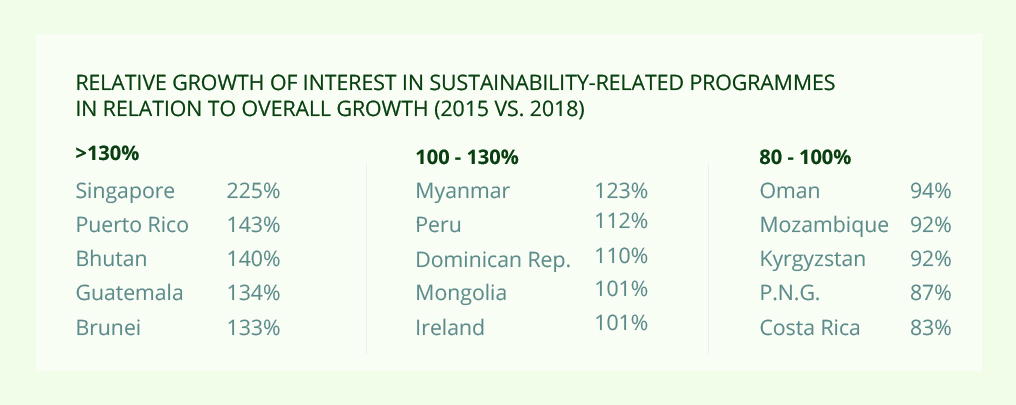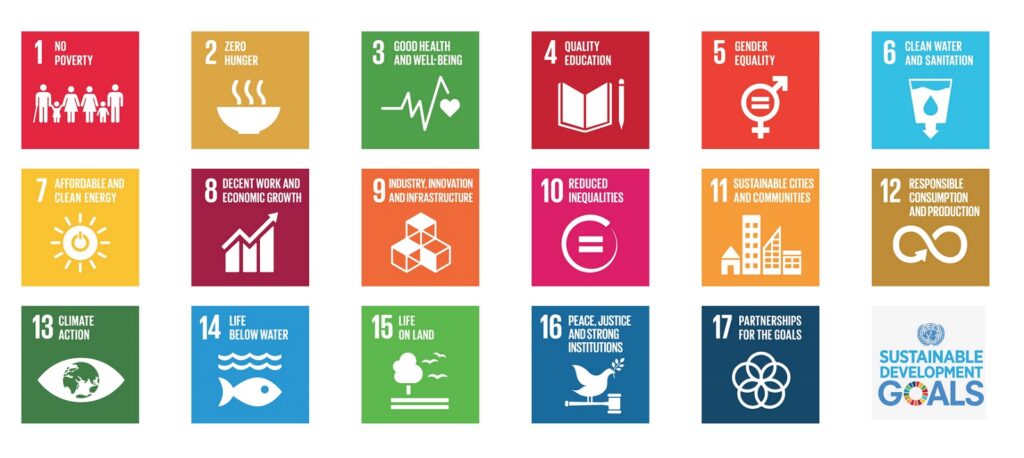Students from developing economies respond to need for Sustainable Development

In a century marked by climate change and the ongoing quest for equality, the demand for Sustainable Development has been growing exponentially. Many governments notably shifted focus toward sustainability with the adoption of the 17 United Nations Sustainable Development goals in 2015. This has since put pressure on and opened up opportunities for higher education to expand their academic portfolio and attract new talent.
To rise to the challenge, higher education institutions across the world have been introducing new and more comprehensive programmes in Sustainable Development to help strike the delicate balance between the global need for economic growth and the conservation of our resources and biodiversity. On Studyportals’ websites, we identified more than 1,000 such full-degree programmes in Sustainable Development, taught in English at universities around the world.
We were intrigued to see the bottom-up demand for programmes in sustainable development has also been on the rise. Studyportals data showed that student interest in sustainability-related degrees has tripled in the period between 2015-2018.
The growing interest in education in Sustainable Development seems especially prevalent in developing economies. Relative student interest in sustainability-related programmes, as compared to other fields, has more than doubled in Singapore (225%), Puerto Rico (143%), Bhutan (140%), Guatemala (134%), and Brunei (133%), followed by Myanmar (123%), Peru (112%), the Dominican Republic (110%), Mongolia (101%) and Ireland (101%).

Students from Singapore and Ireland have oriented themselves toward Sustainable Management and Civil Engineering programmes, whereas Puerto Rico, Brunei, Bhutan, Guatemala, Myanmar, and Peru lean more towards Environmental sciences. Sustainable Energy is a popular subject among Sustainable Development courses in Oman and Costa Rica.
In the majority of these countries, the need for progress on the UN Sustainable Development goals has been dire. With 2030 as its end date, the UN Agenda has been an alarming call for global action upon challenges that touch all areas of our well-being, from poverty to equality, to the climate and the environment, to prosperity and infrastructure. In response, countries have passed Sustainable Development plans, considering local priority sectors.
Brunei for example – an economy heavily reliant on oil and gas - announced it was actively seeking to apply Sustainable Development in multiple sectors, predominantly energy, sustainable tourism and the environment. Nested in the borders of Malaysia and just a few miles from Indonesia, the small country sits in the midst the growing palm oil industry and its devastating effects on local communities, wildlife, and the climate. Relative interest is sustainability-related education in Brunei is up 133%.
In Papua New Guinea – another country at the heart of the deforestation and oil palms crisis – interest in Sustainable Development programmes is also rising (87%). Bhutan – where the nation’s development strategy is structured around environmental conservation, and Myanmar – where half or the working force is actively involved with agriculture, have unsurprisingly seen a spike in interest in Agriculture and Sustainability programmes (140% and 123%, respectively).
Climate action is a common and arduous topic in the entire South-East Asia region, where forests are systematically logged or burned to clear land for agriculture - all practices known to majorly contribute to air pollution and greenhouse gas emissions.
But environmental protection is by no means separate from conscious and sustainable development in the social sector. In fact, they go hand in hand as effective environmental care is only possible when it represents a primary organising principle in societies’ economic and political activity. While we are taxing carbon emissions and exploring alternative energy sources to combat climate change, we are applying economic and technological innovation to a seemingly “green” challenge. In this sense, all UN Sustainable Development goals are strongly interconnected. But perhaps the most unifying goal of all 17 is number four – Education.

Education itself represents one of UN’s 17 Sustainable Development goals, with improving access to quality education as its main objective. Additionally, Education plays a unique role in creating a sustainable future as it is tasked to integrate sustainable development into its curricula not so much a separate field, but an overarching principle and a fundamental approach to sciences and popular fields of study like business, technology, architecture, engineering, policy making and many more.
As some higher education leaders commented in a piece by UWN: “As a knowledge producer, the core mission of higher education cuts across all learning domains.”
Everyone at Studyportals is honoured to be an agent in the change towards a more international education, and excited to be helping more students cross borders to learn the skills they need to make a difference in their home countries and respond to some of the most important changes the world is currently experiencing.
This story was presented at Going Global 2019. See the full poster here.
For more updates, follow us!




